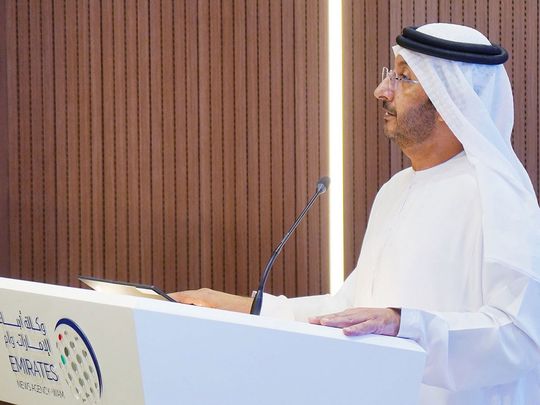
Dubai: In line with the country's ‘We the UAE 2031’ vision, the UAE government recently issued Federal Decree Law No. 15 of 2023 amending some provisions of Federal Law No. 6 of 2018 on arbitration.
Abdullah Al Saleh, Undersecretary of the Ministry of Economy, spoke about the amendments and stated that the UAE government continues its efforts to develop the country’s economic legislation through the establishment of flexible and more efficient, progressive laws that enhance the attractiveness of its business environment.
Al Saleh added that these efforts contribute to increasing investor confidence in the local economy and enhancing the UAE’s position as a permanent hub for trade and investment.
A major change in the law is increasing the scope of using modern technological means across all arbitral work - this was earlier restricted to meetings only. This change, in addition to the other amendments, is expected to make the arbitration process more flexible and matching global standards, according to a press release from the Ministry of Economy in the UAE.
Another key change was that confidentiality could be applied for all arbitral work, with the agreement of the parties. This was also restricted just to meetings, and has been amended in 2023.
Other amendments include:
- Allows the appointment of an arbitrator who is a member of the Board of Directors or Trustees of the arbitration institution handling the case, in accordance with regulations guaranteeing integrity and impartiality and avoiding conflicts of interest.
- The regulations and conditions referred to therein require the arbitrator to not be a member or president of the arbitral tribunal, that the regulations of the arbitral institution concerned do not preclude this, and that the appointment, removal, recusal, and work of the arbitrator be regulated.
- Introduces legal consequences against the arbitral institution and the arbitrator if the governance conditions referred to are violated, beginning with the invalidity of the arbitral award and civil compensation for the wronged.
- Authorises the parties' agreement to arbitral proceedings, including subjecting these proceedings to the rules of any arbitral organization or institution in or outside the country, and granting the arbitral tribunal jurisdiction to determine them in the absence of an agreement that contradicts the fundamental principles of litigation and international conventions to which the country is a party.
- Establishes arbitral institution’s discretion, which is not contrary to public order concerned with determining the rules of evidence to be followed in the absence of an agreement and the absence of evidence from the applicable law.
- Grants the arbitral tribunal greater discretion in respect of statements, whether in terms of acceptance or assessment of their association with any fact, opinion, experience, time, method, or form for the exchange of such statements between the parties and the manner in which they are submitted to the arbitral tribunal.
Al Saleh also pointed out that it will promote the UAE's ranking as a leading hub in the adoption of forward-looking legislation, especially after permitting all arbitration work to be conducted via modern technological means or in tech communities.








